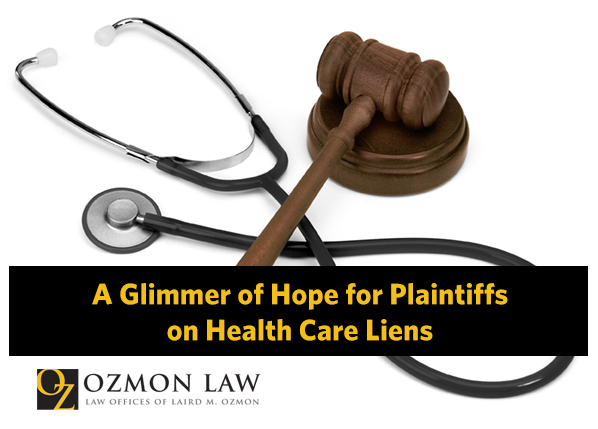
Healthcare liens can trip up plaintiffs and their counsel as well as derail reasonable settlements. Since the Illinois legislature “clarified” the obligations of the parties in the Health Care Services Lien Act, 770 ILCS 23/1 et seq., injured victims have generally been on the losing end of health care lien disputes. Yet a case recently decided by the Illinois Appellate Court from the Fourth District gives plaintiffs an avenue to relief. In Turner v. Orthopedic and Shoulder Center, S.C., 2017 IL App (4th) 160552 (July 6, 2017), the court considered multiple arguments to defeat the health care services lien including claims by the plaintiff against the healthcare service provider for consumer fraud and intentional infliction of emotional distress. These claims did not make it across the finish line for plaintiff; notwithstanding this, the court ultimately adjudicated the plaintiff’s health care lien to zero.
In the Turner case, the court looked at the specific provisions of the Health Care Services Lien Act, what was included and not included in it. It rejected any interpretation of the legislative history urged by the defendant because it found the statute unambiguous. The panel concluded that to have a health care services lien on the plaintiff’s settlement proceeds, the defendant had to be the plaintiff’s creditor, in other words, the plaintiff had to owe a debt to defendant for health care services. The existence of such a debt depended not on the Lien Act but, rather, on the contractual relationship between the defendant and plaintiff. The plaintiff was an intended third party beneficiary of the governing contract, the “Participating Provider Agreement” so the court looked to this document for answers. Under this agreement, the defendant was not the plaintiff’s creditor, and the defendant had no “reasonable charges” against her because Blue Cross’s payment of its “Usual and Customary Fee allowance” was, as defendant had agreed, “full payment for each [covered] service.” Thus, the court determined without an unpaid debt owed by the plaintiff, there could be no valid lien on her property.
What this case and its recent predecessor, Barry v. St. Mary’s Hospital Decatur, 2016 IL App (4th) 150961, tell us as plaintiff’s attorneys is to look deeper when evaluating and negotiating health care liens on behalf of our clients. The underlying provider agreements should be obtained from all health care providers claiming a lien. These contracts may be fertile ground for reducing or eliminating liens, putting more dollars in the pockets of injured victims.

Laird M. Ozmon, Attorney at Law
